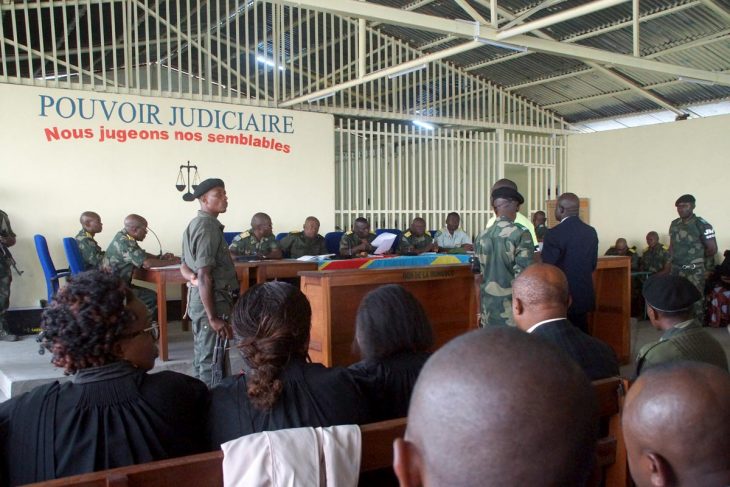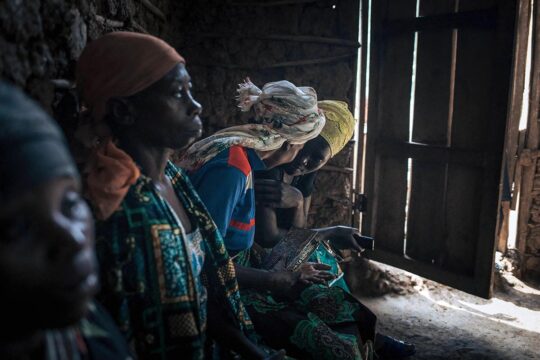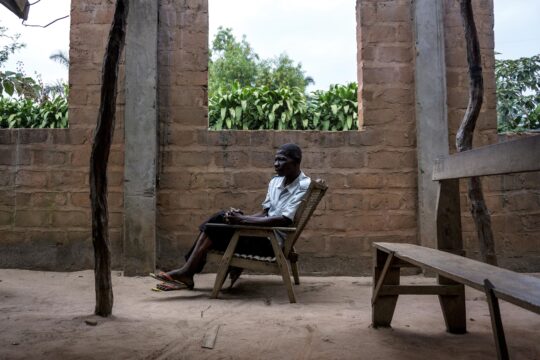On Tuesday, November 27, the military court in Goma was suddenly crowded with hundreds of people - officials including governor of North Kivu Julien Paluku, members of the security forces, United Nations officials, human rights activists, local residents - all of whom came to listen to Tabo Ntaberi, alias Sheka, defend himself against the charges of which he is accused.
The former leader of the rebel NDC, a militia active in North Kivu, eastern DRC, surrendered on July 26, 2017 to UN forces in the DRC after being put under a Congolese arrest warrant. The NDC militia, which is active in several localities of Walikale region, is accused of committing crimes against humanity and war crimes, including murder, rape and looting.
According to the UN, between July 30 and August 2 , 2010, the NDC militia and two other armed groups raped at least 387 women, men, girls and boys in thirteen villages in Walikale. The American organization Human Rights Watch also says it has documented at least 70 deaths of civilians killed by Sheka's forces, many of whom, according to the organization, were cut to pieces with machetes. This is why the Congolese justice system is prosecuting him for crimes against humanity and war crimes.
Trial adjourned
At the opening of his trial, Tabo Ntaberi appeared relaxed in his black suit, sitting next to his three co-accused. But the court, which had hoped to start the case right away, did not succeed. After the identities of the defendants had been confirmed, Sheka requested a three-month postponement to "select lawyers of [his] choice and reassure [himself] about the protection and security of [his] witnesses", with a view to a "fair and balanced" trial. The judges gave him ten days. After about three hours of hearings, the trial was adjourned.
Just over a year ago, in September 2017, civil society organizations in North Kivu sent a letter to DRC President Joseph Kabila calling for prosecution of former Congolese and foreign warlords long active in this eastern part of the country. Tabo Ntaberi was on their list.
"We welcome and support the holding of this trial,” says Edgar Mateso, vice-president of North Kivu civil society. “We want Tabo Ntaberi's trial to be exemplary so as to discourage other militia leaders still active in the province. It is also an opportunity for Congolese justice to restore victims' rights."
Hopes and fears
Although it is hopeful, civil society also remains wary. The trial opens in the heat of an election campaign in the DRC, with presidential elections set for December 23. Mateso does not think this has been done deliberately for electoral purposes, “otherwise it would be to scorn the suffering of the victims”, he told JusticeInfo.net. And Prince Kihangi, head of the Walikale Development Studies Office (BEDEWA), is concerned that the trial opening will not necessarily signal an end to crimes in Walikale.
In addition to the legal proceedings against Sheka, the State must also hunt down the militias so as to put an end to the crimes and pacify the region.
"When Sheka surrendered, the authorities did not make enough effort to track down his NDC militia, which remains active in Walikale," he said. "And there are also a dozen other local armed groups that continue to commit crimes. So in addition to the legal proceedings against Sheka, the State must also hunt down the militias so as to put an end to the crimes and pacify the region."





